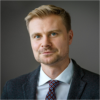[Forum of Legal Actors] Supporting and defending the right to freedom of expression and the safety of journalists
Published 29 September 2022
Journalism has become a dangerous profession. Legal actors are gathering in The Hague to support and defend the right to freedom of expression and the safety of journalists.
Next week, the Asser Institute will host the Forum of Legal Actors for Freedom of Expression, which will discuss the state of freedom of expression and the protection of journalists in Africa and Latin America. The global network aims to support and defend the right to freedom of expression and the safety of journalists.
Journalism, a public good, is vital for maintaining a free flow of independent and reliable information. But journalists face increasing risk for doing their jobs. Harassment (both in real life and online), violence, imprisonment or death; journalism has become a dangerous profession.
Although the universal human right to freedom of expression and the relevance of the rule of law are formal UN Sustainable Development Goals, the past decade saw a steep growth in attacks on freedom of expression in general, and on the safety of journalists in particular.
From 2016 to the end of 2021, for instance, UNESCO recorded the killings of 455 journalists, who either died for their work or while on the job. At the same time, imprisonment of journalists has reached record highs. Nine times out of ten, the murder of a journalist remains unresolved.
Crucial right
The Forum of Legal Actors, which falls within the framework of the UN Plan of Action on the Safety of Journalists’ and the Issue of Impunity, aims to strengthen the defence of the crucial right of freedom of expression by engaging legal experts from across the world.
Jointly launched in 2020 by the Asser Institute, UNESCO, Free Press Unlimited, and sponsored by the Ministry of Foreign Affairs of the Netherlands, the Forum of Legal Actors is a global platform to exchange views on best practices and the interpretation of legal provisions. The Forum, which consists of high-level judges, public prosecutors, lawyers, academics and legal representatives of civil society, will disseminate international norms and standards in comparative law.
Impunity
By exchanging knowledge, the Forum of Legal Actors aims to set forth how legal actors can help in defending the freedom of expression, and in prosecuting perpetrators of crimes against journalists. For impunity for attacks on journalists, threatens both the rule of law and respect for fundamental rights.
From Tuesday 4 till Thursday 6 October, the Asser Institute will welcome around thirty highly prominent practitioners, judges, prosecutors, legal representatives of civil society and leading academic researchers, the majority of whom come from Latin America and Africa. The forum will be conducted in three languages simultaneously (English, French and Spanish) with on-site interpreters.
Read more
Today at WPFC 2020, the Ministry of Foreign Affairs of the Netherlands, UNESCO, Free Press Unlimited and the T.M.C. Asser Instituut jointly launched the Forum of Legal Actors. The initiative should help to create a network of legal actors to support and defend the right to freedom of expression and the safety of journalists. Read more.
Project leader is Dr Uladzislau Belavusau, senior researcher in European Law at the Asser Institute. Ulad is part of the research strand In the public interest: accountability of the state and the prosecution of crimes, which examines i) the accountability of states - individually and collectively (for instance at the level of the United Nations or the European Union) - in light of public interest standards in the context of counter-terrorism; and ii) the prosecution of individuals for international and transnational crimes in the public interest. Moreover, to ensure both the accountability of the state and the prosecution of individuals, this strand will also investigate iii) the role of journalists, the (new) media, human rights NGOs and academics in protecting and promoting public interest standards.
The event is supported by the Ministry of Foreign Affairs of the Netherlands, UNESCO and Free Press Unlimited.


